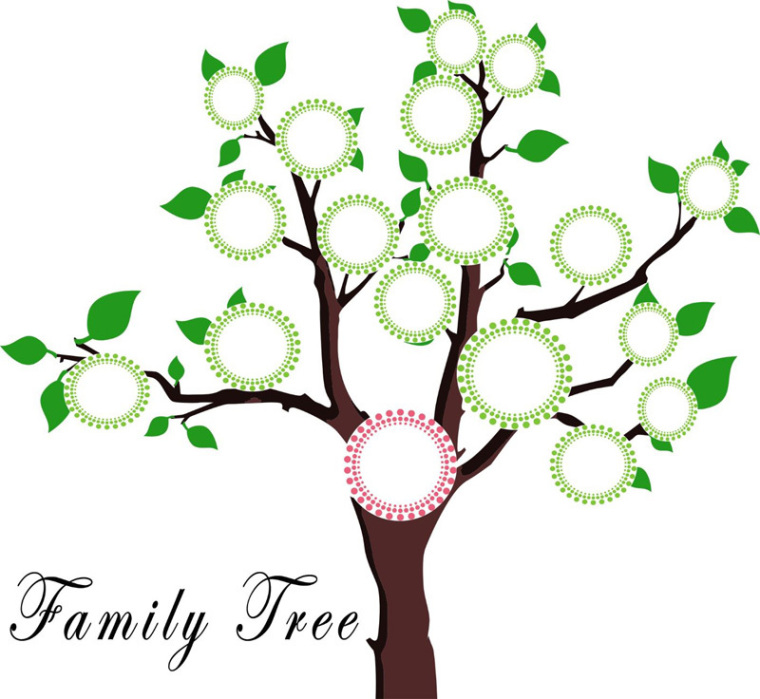
When you open your Bible to the book of Genesis, one of the first things you may notice is how many genealogies there are in it. The genealogies of chapters 4, 5, 10 and 11 are particularly interesting, most especially the genealogy in chapter 5.
The names are generally overlooked by most modern readers, but they weren’t by the ancient Israelites, who understood the original language, Hebrew. One could write volumes about the significance of the names and of their meanings, but I’ll only touch on them here.
The names are, unfortunately for us, not translated from the original language but transliterated to approximate their Hebrew pronunciation.
Difficult to Pursue
The meanings of the proper names can be difficult to pursue since direct translations are not readily available. Many study aids can prove to be quite superficial when dealing with proper names. Even so, if we take a look at the root meanings, we can discover some fascinating insights.
Of course, we start with the father of our race Adam. His name comes from ‘adomah’, and means “man; mankind, which in turn is derived from the word meaning “earth” or “red”.
Next, we have Seth, the son born to Adam and Eve after their eldest son Cain killed his brother Abel as a replacement for Abel. His (Seth’s) name means “appointed”; “placed”; “put”; compensation”; “to replace”. His son, Enosh, has a name meaning “mortal”; “frail”; miserable”; “frail man” (Great name, huh?), which comes from the root word ‘anash’, meaning “to be incurable”, which is used of a wound, grief, woe, sickness, or wickedness.
Enosh’s son was named Kenan, which has the meaning “sorrow”; “dirge”; “elegy”; “wailing chant” (another ‘great’ name). The precise denotation is a little elusive, as some study aids mistakenly presume an Aramaic root synonymous with “Cainan”.
Kenan had a son he named Mahalalel, which is a name derived from ‘mahalal’, which means “blessed” or “praised”; and ‘El’, which simply means “God”. Thus, Mahalalel means “the Blessed or Praised God” (a much better name, don’t you agree?).
Often Theophoric
Often Hebrew names are theophoric (bearing the name of a god), including El, as in Dani-el, “God is my Judge”, Nathani-el, “Gift of God”, etc. Mahalalel’s son was named Jared, from the verb ’yaradh’, meaning “shall come down”.
His son was Enoch, which means “teaching” or “commencement”; dedicated; “teacher”. It is from a primitive root meaning properly “to narrow”; figuratively to initiate or discipline.
Enoch’s son was Methuselah, which comes from two roots: ‘muth’, which means “death”; and from “shalach”, which means “to bring” or “to send forth”. As such, Methuselah signifies, “his death shall bring”. Methuselah’s son was Lamech, a root still found in English “lament” or “lamentation”. Lamech means “despairing”; or “grieving” (another one of those ‘great’ names). Incidentally, this is the same name linked to the Lamech of Cain’s line who inadvertently killed his son Tubal-Cain in a hunting incident.
Last, but not least
And last, but definitely not least, we have Noah, a son of Lamech. Noah is a name derived from ‘nacham’, which means “to bring relief”; “comfort”; “rest” as Lamech himself explained in chapter 4 verse 25.
When we put all these names together, we find that the names summarise God’s plan for the redemption of humanity. There’s absolutely no way anyone could ever convince me that a group of Jewish rabbis deliberately contrived to hide the basic message of the Christian Gospel in a genealogy within their venerated Torah.
At first glance the implications of this discovery may not seem like a big deal, but on further examination they are far more deeply significant than may be evident at first glance. It demonstrates God had already laid out His plan of redemption for humanity’s predicament of sin. It was not a kneejerk reaction to the events of the Garden.

Katelin Staples is from Gladstone, Queensland. By day Katelin is employed as a proofreader. Katelin has a passion for discovering the deep things of God and how they affect the world around us.